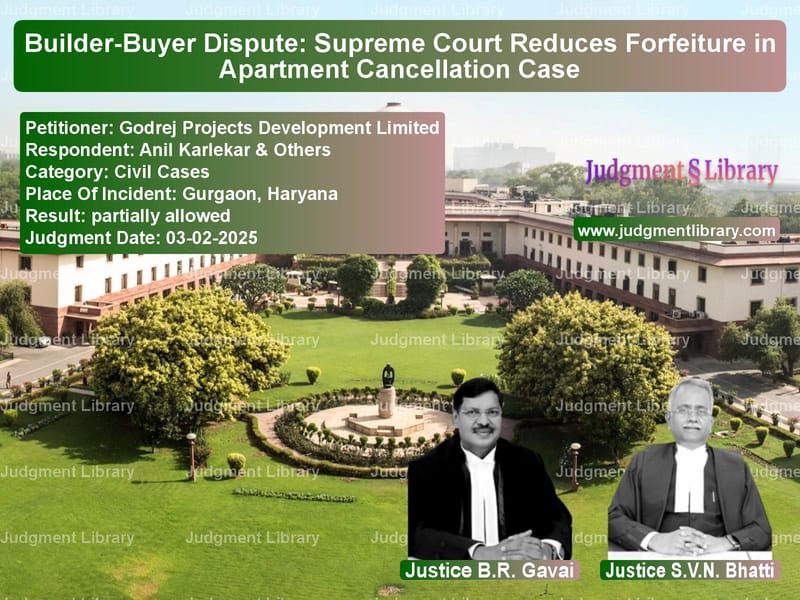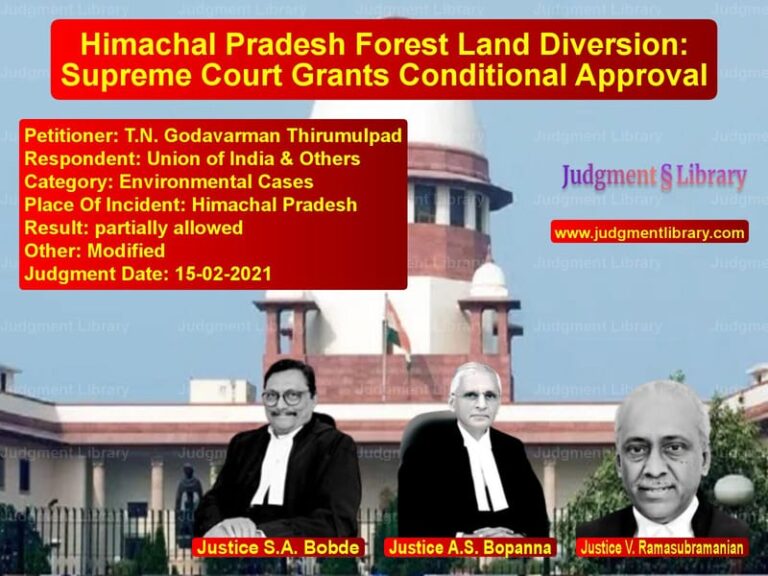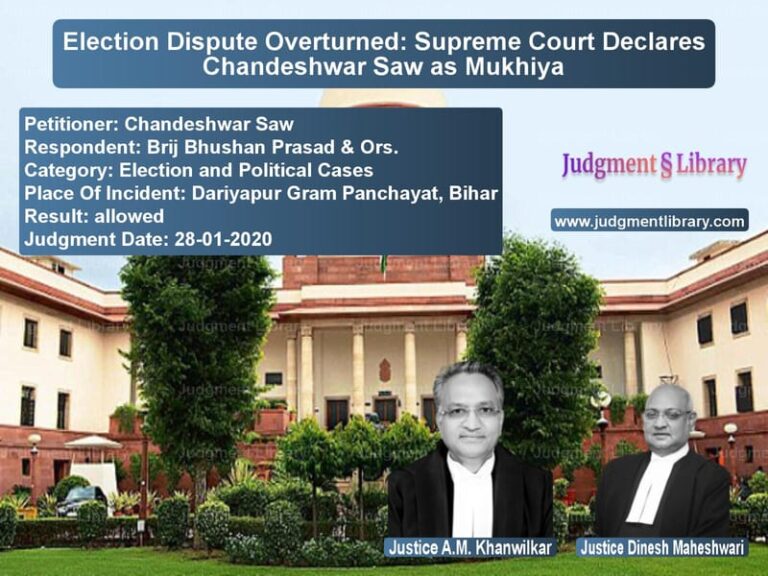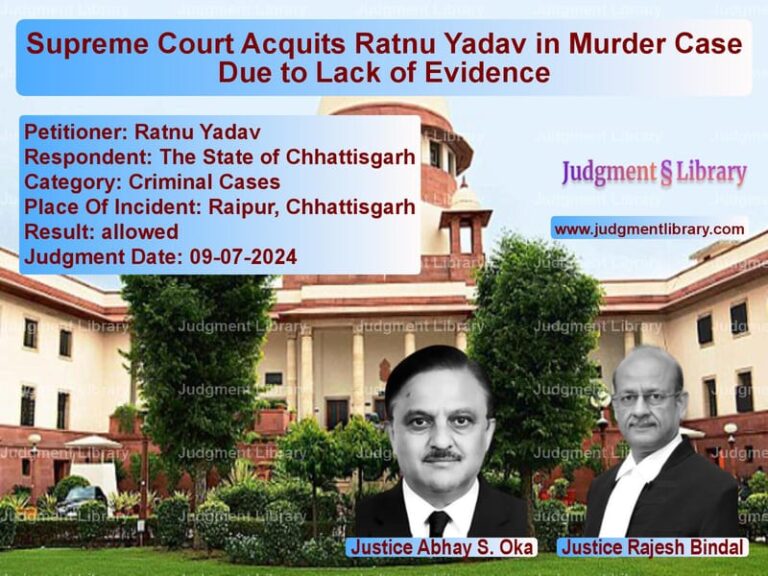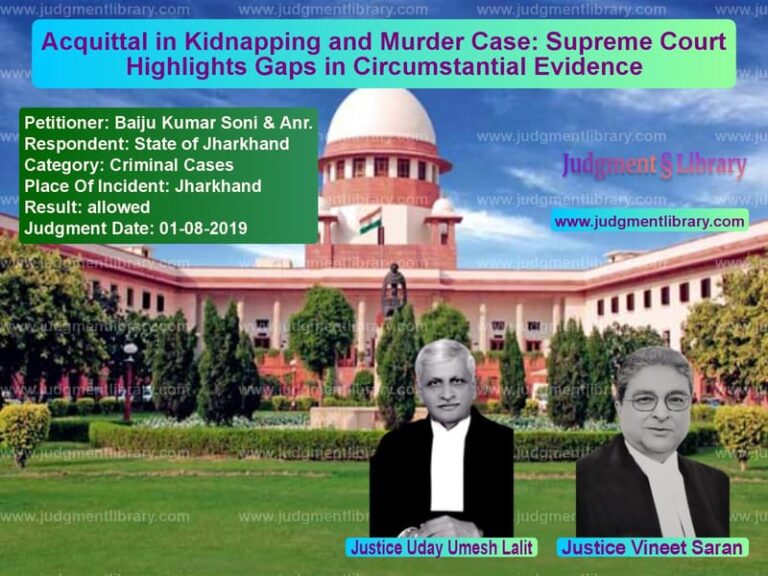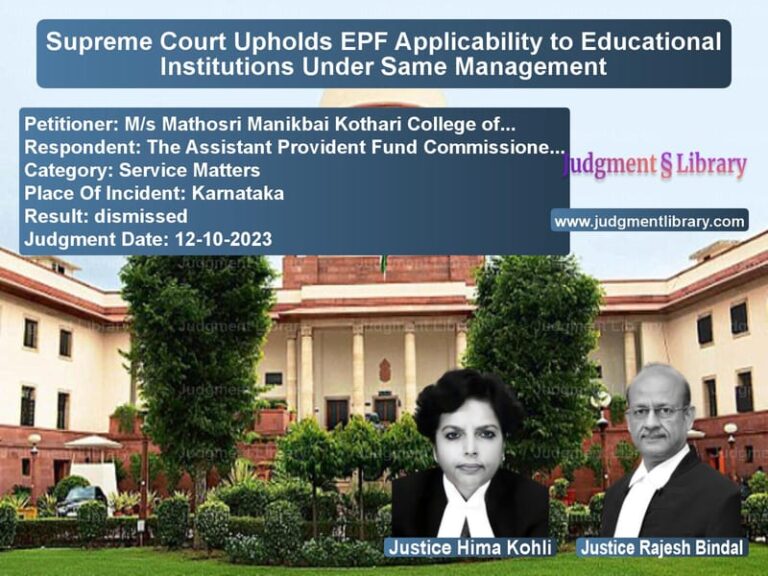Builder-Buyer Dispute: Supreme Court Reduces Forfeiture in Apartment Cancellation Case
The case of Godrej Projects Development Limited vs. Anil Karlekar & Others is a significant ruling concerning the rights of homebuyers when cancelling property bookings. The Supreme Court examined whether a builder could enforce a 20% forfeiture clause in case of cancellation and whether interest should be paid on refunded amounts. The verdict has set a precedent on how consumer protection laws apply to real estate transactions.
Background of the Case
The dispute arose from an apartment booking in the project “Godrej Summit” in Gurgaon, Haryana. The complainants (homebuyers) had booked a flat in 2014 but later sought to cancel their allotment in 2017 due to a decline in market prices. They demanded a full refund of their payments.
The key timeline of events is as follows:
- 2014 (January 10): Homebuyers booked an apartment and paid Rs. 10,00,000 as an initial deposit.
- 2014 (June 20): Allotment letter was issued, and an Apartment Buyer Agreement was signed.
- 2017 (June 20): The builder received the Occupation Certificate.
- 2017 (June 28): Builder offered possession to the homebuyers.
- 2017 (August 22 & 31): Homebuyers requested cancellation, citing a market price drop.
- 2017 (September 1): Builder informed them that they were entitled to a refund of only Rs. 4,22,845 after deducting 20% as earnest money.
- 2017 (September 29): Homebuyers sent a legal notice demanding a refund of Rs. 51,12,310.
- 2018 (November 14): Homebuyers filed a complaint with the National Consumer Disputes Redressal Commission (NCDRC).
- 2022 (October 25): NCDRC ruled that the builder could deduct only 10% of the basic sale price (BSP) as forfeiture, not 20%.
- 2023 (January 10): Builder challenged the NCDRC order before the Supreme Court.
- 2025 (February 3): The Supreme Court upheld the NCDRC’s decision on the 10% forfeiture cap but removed the requirement for interest on the refunded amount.
Petitioner’s Arguments (Builder)
The builder, Godrej Projects Development Limited, argued:
- The apartment buyer agreement contained a valid forfeiture clause allowing them to deduct 20% of the BSP in case of cancellation.
- The homebuyers had voluntarily cancelled the booking due to falling market prices, not due to any default by the builder.
- The NCDRC had wrongly reduced the forfeiture from 20% to 10% despite acknowledging the validity of the contract.
- The builder relied on precedents (Satish Batra v. Sudhir Rawal) that upheld the forfeiture of earnest money.
- The agreement was binding, and courts should not interfere with its commercial terms.
Respondent’s Arguments (Homebuyers)
The homebuyers, represented by legal counsel, contended:
- The forfeiture clause of 20% BSP was unfair, one-sided, and arbitrary.
- The NCDRC had previously ruled in similar cases that only 10% BSP could be forfeited.
- As per the Real Estate (Regulation and Development) Act, 2016 and the Haryana Real Estate Regulatory Authority Regulations, 2018, builders could forfeit only 10% of BSP.
- The Supreme Court had already ruled in Pioneer Urban Land and Infrastructure Ltd. v. Govindan Raghavan that one-sided contracts are unfair and unenforceable.
- The homebuyers had sought cancellation due to external market conditions, not due to any default on their part.
Supreme Court’s Observations
The Supreme Court examined the buyer agreement, consumer protection laws, and legal precedents. Key observations included:
- The 20% forfeiture clause was unreasonable and unfair, given that the builder faced no actual financial loss.
- Past judgments had ruled that one-sided agreements in favor of builders could not be enforced.
- The homebuyers had exercised their right to cancel the booking, but the builder was still obligated to refund most of the paid amount.
- The NCDRC’s decision to reduce forfeiture to 10% was consistent with past cases.
- However, the Supreme Court ruled that no interest should be paid on the refunded amount, as the homebuyers had benefited from market conditions.
Final Judgment
The Supreme Court:
- Allowed the builder to forfeit 10% of the BSP as earnest money.
- Directed the builder to refund Rs. 34,04,170 (after deducting 10%).
- Ruled that the homebuyers were not entitled to interest on the refunded amount.
- Ordered the builder to complete the refund process within six weeks.
The Court ruled:
“The apartment buyer agreement was one-sided and tilted in favor of the builder. The condition of forfeiture of 20% BSP is unreasonable. However, awarding interest on the refunded amount is not justified in this case.”
Conclusion
This ruling strengthens consumer protection in real estate transactions, ensuring that builders cannot impose excessive forfeiture on homebuyers. However, it also clarifies that refunds in voluntary cancellations may not carry interest. The decision balances contractual obligations with fairness for both parties and sets a precedent for similar disputes in India.
Petitioner Name: Godrej Projects Development Limited.Respondent Name: Anil Karlekar & Others.Judgment By: Justice B.R. Gavai, Justice S.V.N. Bhatti.Place Of Incident: Gurgaon, Haryana.Judgment Date: 03-02-2025.
Don’t miss out on the full details! Download the complete judgment in PDF format below and gain valuable insights instantly!
Download Judgment: godrej-projects-deve-vs-anil-karlekar-&-othe-supreme-court-of-india-judgment-dated-03-02-2025.pdf
Directly Download Judgment: Directly download this Judgment
See all petitions in Property Disputes
See all petitions in Consumer Rights
See all petitions in Judgment by B R Gavai
See all petitions in Judgment by S.V.N. Bhatti
See all petitions in partially allowed
See all petitions in supreme court of India judgments February 2025
See all petitions in 2025 judgments
See all posts in Civil Cases Category
See all allowed petitions in Civil Cases Category
See all Dismissed petitions in Civil Cases Category
See all partially allowed petitions in Civil Cases Category

